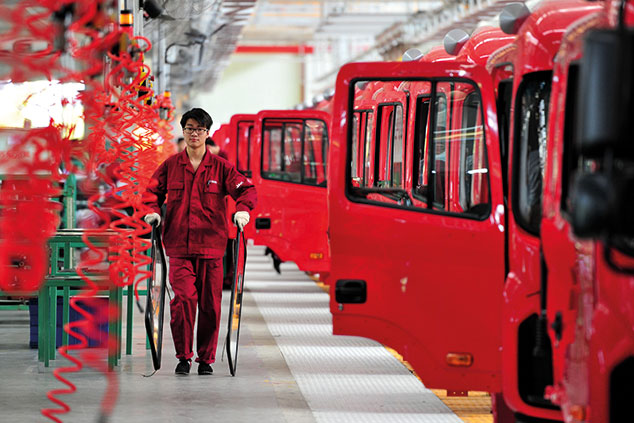
The authorities look increasingly rattled. In a bid to reduce the risk of a sharp slowdown, the central bank has cut the reserve ratio for banks for the fifth time in a year, freeing up $116bn for new lending. Beijing has also approved new rail projects worth more than $125bn.
China has “not fired its heavier artillery”, such as a rate cut, says Christopher Beddor on Breakingviews. “But there is little chance of a credit binge of the sort seen
in 2009, when credit growth leapt from 16% to 33%,” says Tom Holland in the South China Morning Post, as Beijing’s longer-term aim is to reduce its huge debt pile. China’s efforts to bolster growth will cheer emerging and global markets. But its struggle has revived doubts as to whether it can pull off the transition from an economy driven by investment to one based on consumption and services, as is the case in industrialised economies.
The increasingly authoritarian leadership under Xi Jinping could compound disillusionment caused by a slower economy. Diana Choyleva, head of consultancy Enodo Economics, told The Observer that in 20 years of covering China, “this is the most worried I’ve ever been about the party’s ability to keep the show on the road”.